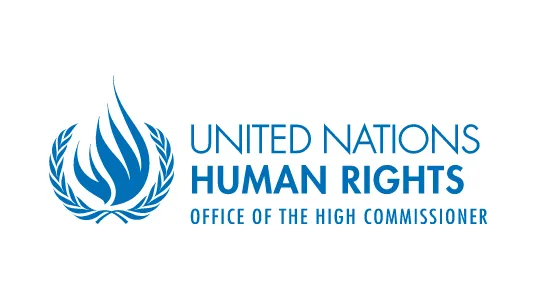Seize momentum for justice created by application for ICC arrest warrant against Myanmar junta leader: UN expert
16 December 2024

GENEVA – The International Criminal Court (ICC) Prosecutor Karim A.A. Khan’s decision to request an arrest warrant for Myanmar military commander-in-chief, Min Aung Hlaing can build momentum for justice and hope if it is seized and built upon now, a UN expert said today, following meetings in The Hague with Khan and his team.
“The Prosecutor’s decision to request an arrest warrant for Min Aung Hlaing in relation to his crimes against the Rohingya was a long-awaited and critical step forward,” said Tom Andrews, UN Special Rapporteur on the human rights situation in Myanmar.
“There is not a moment to lose to move the wheels of justice forward. I am encouraged by the Prosecutor’s commitment to requesting further warrants and that this will be done as soon as possible. It is critical that governments lend their full support to enforcing them,” he said.
Andrews said this was an important moment for victims of the 2017 attacks against the Rohingya, who have waited for justice for far too long.
“Min Aung Hlaing is not only accused of atrocity crimes against the Rohingya, he is also responsible for ongoing war crimes and crimes against humanity throughout Myanmar. He must be stopped and held accountable,” he said.
On 27 November, ICC Prosecutor Khan, speaking in Bangladesh, announced that his office had filed an application for an arrest warrant for Min Aung Hlaing in relation to the crimes against humanity of deportation and persecution of the Rohingya. He stated that the alleged crimes, which took place between August and December 2017, were committed in part in the territory of Bangladesh, which is State Party to the ICC. Such crimes therefore fall within the Court’s jurisdiction. Myanmar itself is not a State Party to the ICC, and the Security Council has not referred the situation in Myanmar to the Court.
“Unfortunately, because of the jurisdictional limitations on the Court the Prosecutor’s case does not address the full breadth of atrocities committed against the Rohingya, the ongoing international crimes committed by the junta since the February 2021 military coup, nor the historic crimes perpetrated by the military against pro-democracy activists and ethnic groups,” Andrews said.
He reiterated his call for governments to support universal jurisdiction cases concerning Myanmar in competent national courts and for States Parties to the ICC to consider referring the situation in Myanmar to the Prosecutor under Article 14 of the Rome Statute, further to the declaration made by the National Unity Government accepting the Court’s jurisdiction.
“All States that continue to engage with the junta should be re-evaluating their relationship with the Senior General in light of the Prosecutor’s application for an arrest warrant,” the Special Rapporteur said.
“Min Aung Hlaing is on notice that he and his brutal military junta can’t hide from justice,” Andrews said. “But the international community must act swiftly. The Prosecutor’s recent decision is an important step forward, but much more needs to be done to ensure robust accountability for the staggering catalogue of crimes committed in Myanmar.”
Tom Andrews (United States of America) is the Special Rapporteur on the situation of human rights in Myanmar.
The Special Rapporteurs, Independent Experts and Working Groups are part of what is known as the Special Procedures of the Human Rights Council. Special Procedures, the largest body of independent experts in the UN Human Rights system, is the general name of the Council’s independent fact-finding and monitoring mechanisms that address either specific country situations or thematic issues in all parts of the world. Special Procedures’ experts work on a voluntary basis; they are not UN staff and do not receive a salary for their work. They are independent from any government or organization and serve in their individual capacity.
For additional information and media requests please contact: Sara Brandao ([email protected]).
For media inquiries related to other UN independent experts please contact: Dharisha Indraguptha ([email protected])
Announcements
21 May 2025
Open letter: Malaysia must lead ASEAN with principle, not hypocrisy, to address the Myanmar crisis

Progressive Voice is a participatory rights-based policy research and advocacy organization rooted in civil society, that maintains strong networks and relationships with grassroots organizations and community-based organizations throughout Myanmar. It acts as a bridge to the international community and international policymakers by amplifying voices from the ground, and advocating for a rights-based policy narrative.